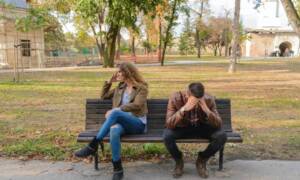People believe leaving an abusive relationship is the start of a new life. Well, it is, but it’s not all that easy and liberating as it may seem. You see, it’s not only about leaving that past life. It is also about healing from those wounds. Throughout the abusive phase, you have something to drive you. It’s playing the victim or playing the survivor.
Either way, when you walk away from the abuse, you’re left with your broken self and traumas from the past. You’re unsure of what to do next because all this time, you had that abusive character in your life that had driven you to escape. Many people lose the fight after leaving an abusive relationship because they find themselves incapable of healing from the misery they experienced.
Good news! You don’t have to fight your way through life alone. Therapy after an abusive relationship can help you regain control over your life. Therapy enables you to build your road back to normalcy by cultivating a sense of self-compassion and mending your broken self-esteem.
However, people are hesitant when asking for help. Contrary to belief, there is no shame in asking for help. Instead, it is a sign of strength and self-love. Abusive relationships can ruin your confidence. Getting help after such relationships can help untangle your manipulated feelings to see the world clearer and prevent you from manifesting these feelings in a greater, more deadly form.
Many victims are stuck answering the question: “Do I need therapy after an abusive relationship?”
Yes, you do. You may feel that you’ll eventually come to terms with your past, but they’re just wounds you’re hiding under bandages. If you’re ready to start a new chapter of your life, therapy can be a great helping hand.
1. Therapists provide extra support:
Confiding in loved ones and family is one thing and getting professional help is another. You will obviously need your friends and family around through this rough phase but sometimes sharing all these traumas with them is not as easy as it may seem. Not only do the victims fear being judged, but in many cases, the abuser creates such a situation that reaching out to loved ones is challenging.
It is natural to feel for you to feel insecure even in your comfort zone. Even though your loved ones may vow never to see you differently, the events unconsciously change their perspective about you. That’s why a therapist, not only a good listening ear but also a practiced professional, can become your secret keeper in such times.
2. Therapy rebuilds your outlook about future relationships:
Any survivor of an abusive relationship in their sane mind would religiously vow never even to fathom a future relationship. Even if you do, you’re anxious beyond limits; just the idea of it scares you. Yes, you’re supposed to learn from past events, but it sure does not mean that you close doors on yourself.
You will need to reconnect with life and learn to open up your heart to someone who deserves it. A therapist can walk you through your traumas and help you overcome them. Additionally, they’ll assist you in changing your perspective about future relationships. Although your fears may irk you, you’ll learn to look for the red flags and warning signs that you’re in an abusive relationship.
3. Therapy doesn’t mean you’re crazy; it means you care for yourself:
After an abusive relationship, self-care becomes inevitable. You need to make up for all the self-care you compromised in that toxic environment. Therapy after an abusive relationship is just the way to do it. Therapy will solely allocate your undivided time and attention to your damaged self and help you heal.
You are not at fault for the abuse you went through. There are just some times that you require assistance to get back on track.
4. Therapy breaks down your walls:
An abusive relationship can sometimes have you barricade yourself with walls. What you call defense mechanisms to protect yourself are barriers to the world that distances you from even the good things in life. It is natural to close yourself off because you’re scared and insecure.
Therapy after an abusive relationship can help you overcome your insecurities and your misconceptions about yourself and life. It will help you deal with the guilt, shame, regret, and hurt that the abuser has left you with.
5. Therapy helps identify your triggers:
Certain elements are associated with the fear and abuse you experience. These are called triggers. Although you’re overcome by a general feeling of low self-esteem and anxiety, a few things can significantly elevate your phase of uneasiness. You must identify these triggers.
This process is challenging on your own, but a therapist can help you understand your feelings and where your deepest fears lie.
Talking about therapy after an abusive relationship is not the same for everyone. There might be victims out there that have left everything to protect their sanity, and affording treatment can be difficult. So does this mean that therapy is limited to those who can afford it? And then how do you overcome past abuse if not therapy?
Many assistance programs entertain people with low resources. Therapy sometimes is not a luxury but a necessity in people’s life. Never subside your need for therapy with more “urgent” matters. Therapy after an abusive relationship can transform your fears into strengths and your insecurities into lessons.
It may seem manageable, but sometimes invisible violence can destroy lives. More on it here.














